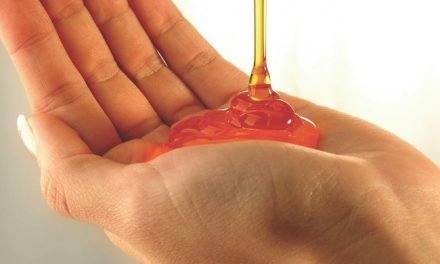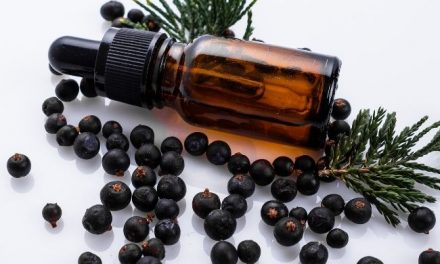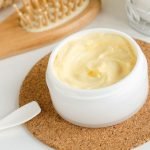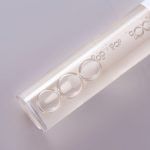Hey Beautiful! This site is reader-supported and we earn commissions if you purchase products from retailers after clicking on a link from our site.
Can you eat petroleum jelly? Sounds weird, right? Truth be told, there are many reasons why a person might ask, or at least ponder, the thought. From sneaky children to people looking for a magical cure for varying health ailments, the question of whether or not swallowing Vaseline is toxic to human health is a fairly popular one. In this post, we will explore this question, as well as a few others, to get a better understanding of the proper use of Vaseline and whether or not it should be ingested.
Can You Eat Petroleum Jelly?
So, can you eat petroleum jelly?
Technically? Yes.
You can eat petroleum jelly and have minimal side effects. Vaseline, otherwise known as petroleum jelly, was created by a native New Yorker who actually ate a tablespoon of it each day. To him, petroleum jelly was the magic cure for all sorts of health ailments, from burns and cuts to the healing of inner disease!
Of course, there’s no evidence for the latter portion of the aforementioned beliefs about healing diseases, however, petroleum jelly has been effectively used for decades for external injuries like burns, cuts, chaffing and more.
Even the Vaseline company themselves have taken on the question of whether or not Vaseline is “bad” for you, and their answer is absolutely not. In fact, they claim it has been purified three times to make the product as non-toxic as possible.

What Happens If You Eat Petroleum Jelly?
Not much. Honestly, if it’s just a little bit, you’ll likely notice minimal to no effects.
In large doses however, petroleum jelly side effects might include loose stools, as your stomach may have difficulty digesting such a vast amount of oil.
Is Petroleum Jelly Toxic to Humans?
As for petroleum jelly dangers, there isn’t much to be afraid of. However, when it comes to little children or those with other underlying health issues, it could be said that ingesting large amounts could have the potential to get stuck in the throat.
Moreover, if the person who has ingested the large amount of Vaseline is a child and that child starts coughing, it is recommended that the parent or caregiver contact poison control, immediately, as coughing can be an indication of aspiration.
What Are the Side Effects of Petroleum Jelly?
Petroleum jelly side effects are minimal when used externally. Stinging and irritation may occur when applied to some wounds, but this is to be expected when attempting to apply any topical emollient directly to wounded or otherwise irritated skin.
When consumed internally, petroleum jelly will likely, at most , cause loose bowels. Swallowing a very large amount may result in coughing, shortness of breath, diarrhea or abdominal pain.
If petroleum jelly is aspirated in the lungs the symptoms could be much worse. Petroleum jelly dangers include coughing up blood, fever, chills and chest pains. These are common signs to look for and a poison control should be contacted immediately if you notice them.
Can You Use Petroleum Jelly Internally?
As mentioned, petroleum jelly is relatively safe to ingest, however, if being used as lubrication for sexual intercourse, caution must be used. Vaseline may be effective for use as lubricant, however, it often damages condoms and can lead to pregnancy. To avoid this, it is suggested that you use a lubricant specifically designed for sexual use, instead.
Eating Vaseline

Is Vaseline Edible?
Vaseline actually meets FDA guidelines making it safe to consume. Thus, most petroleum jellies are edible, albeit not very tasty.
When it comes to medicated petroleum jelly, however, or Vaseline that has added ingredients such as fragrance and the like, the petroleum jelly is no longer deemed safe for consumption and may have serious and harmful side effects if you ingest it in large amounts.
Is Vaseline Toxic to Eat?
Is Vaseline toxic?
Swallowing Vaseline should not kill you as long as it is not eaten in large amounts and it is not aspirated in the lungs. As mentioned before, the creator of Vaseline ate a tablespoon of the stuff each day and he lived until the ripe old age of 96!
Having said that, Vaseline, or any petroleum jelly for that matter, may become toxic when certain ingredients are added. Before swallowing Vaseline, always be sure to check the label and store any fragranced or medicated petroleum jellies out of the reach of small children and pets.
What Happens If You Eat Vaseline?
If you swallow Vaseline, the truth is that you’ll likely be fine. Having said that, depending on the amount you swallow, you may experience loose stools, diarrhea or other unpleasant effects. For some, Vaseline acts as a laxative. For small children, Vaseline can cause choking because of its thick consistency.
Can You Eat Vaseline to Lose Weight?
By now you know that Vaseline isn’t necessarily toxic. However, you may still wonder about a few myths you may have heard about the benefits of swallowing Vaseline.
Indeed, there are thoughts out there that swallowing Vaseline works to shed fat and drop pounds. In reality, however, this belief has little to no truth to it, other than the fact that Vaseline can be used as a laxative. In this way, though petroleum jelly may cause you to poop more which will then lead to weight loss, it isn’t advised as there isn’t much proof that it works, anyway.
If you are looking to lose weight, we suggest adjusting your diet and remaining active to get the best, and healthiest, results.
Can You Eat Vaseline on Toast?
You could eat Vaseline on toast, but we don’t recommend it.
Either way, as long as it is a small amount, it won’t hurt you, although, if you are looking to get a couple of teaspoons of Vaseline in your diet for whatever reason, this might be a viable option for some.
Eating Vaseline For Sore Throat
Oddly enough, some have resorted to combining petroleum jelly and honey saying that it works wonders for a sore throat. Surprisingly, others concur, offering coconut oil and organic honey as even better options to avoid accidental aspiration or loose stools as described above.
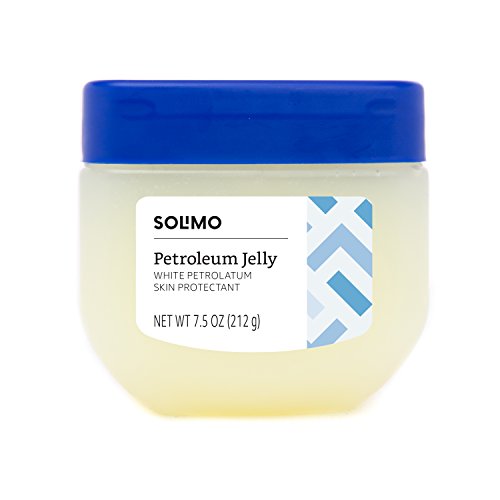
Benefits of Eating Vaseline
Other than using Vaseline as a laxative or claiming that it cures all sorts of ailments and diseases when swallowed, there isn’t much benefit for you to ingest petroleum jelly.
Having said that, there are several ways that Vaseline may prove beneficial for topical use. These include:
- Healing Burns, Scrapes and Wounds
- Sealing Moisture in the Skin
- Preventing Bacterial Infection Through Thick Moisture Barrier
- Removing Makeup
- Healing and Preventing Diaper Rash
- Preventing Staining From Nail Plish or Hair Dye
- Increasing the Duration of Perfume Scents
- Sealing Split Ends
Is Vaseline Bad For You?
Vaseline can have a negative effect on your health if used incorrectly or when overdone. To prevent the risk, consider avoiding swallowing Vaseline and using it only as directed.
Other common risks associated with the use of Vaseline, or petroleum jelly, include:
- Clogged Pores and Facial Acne: Because of it’s thick consistency and heavy emollient properties, Vaseline won’t always be ideal to add to your facial skin routine. For some, Vaseline is effective at moisturizing the skin, it isn’t the case for all. For many, a layer of Vaseline over the face could easily result in large and painful breakouts or tiny bumps due to clogged pores.
- Skin Infection: Depending on the cleanliness of the jelly itself, as well as the cleanliness of your skin, the application of petroleum jelly on open wounds or irritated skin may lead to infection. Always make sure that your skin is both clean and very dry before applying Vaseline. Moreover, always use Vaseline that isn’t tainted with bacteria or other substances before applying to open skin or consuming.
- Aspiration: As mentioned earlier, Vaseline can lead to aspiration when taken in large amounts. In this way, the petroleum jelly goes “down the wrong way” and can result in coughing, choking, fever, chills and difficulty breathing. If you or someone you know experiences these symptoms after consuming Vaseline, call poison control right away. If the person in question is a child, always call poison control for coughing, even if only a little coughing occurs, as coughing indicates that some of the jelly may be stuck in the child’s lungs.
- Allergic Reaction: Believe it or not, some people are sensitive to petroleum-containing compounds. As such, these individuals may experience allergic reactions to derivatives of petroleum such as Vaseline, and should avoid these products at all costs.
Is Swallowing Vaseline Recommended?
At the end of the day, swallowing Vaseline in small amounts won’t hurt you. Because it is naturally derived, unless you are allergic to petroleum derived compounds, you will likely be okay.
When consumed in excess, however, and especially in small children, the risk for health concerns grows. Watch for loose stools or a laxative effect on bowels, and always seek medical attention if coughing after ingesting Vaseline ensues.
Never take Vaseline orally that contains fragrance, medication or other additives, as doing so could pose a major threat to your health and well-being. If you or someone you know has done so, we’d recommend contacting poison control immediately.
Want to know more about the safety of common household products? Check out our post Is Dawn Dish Soap Non-Toxic.


